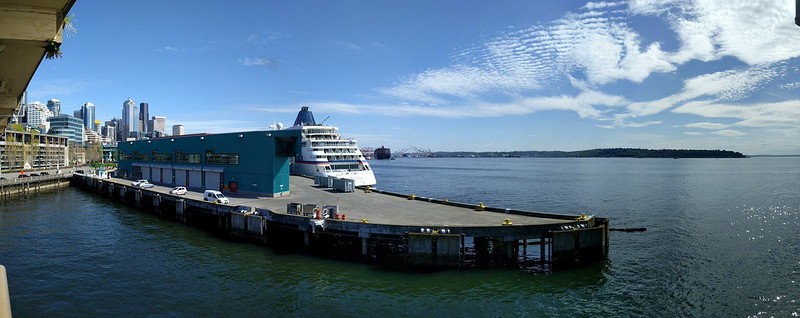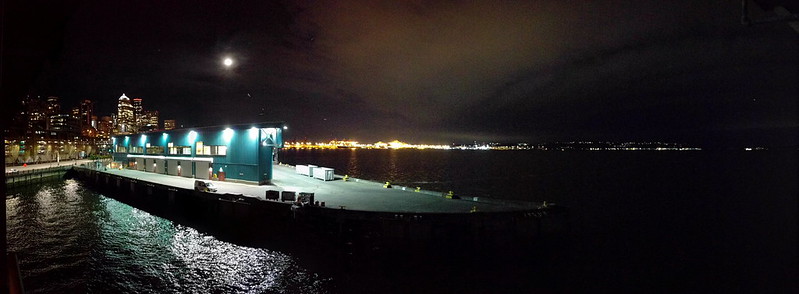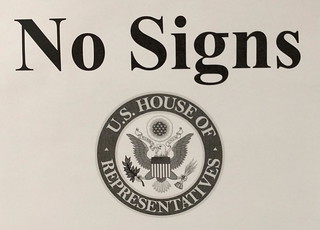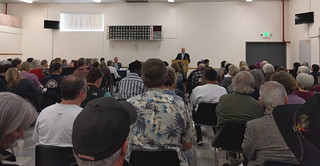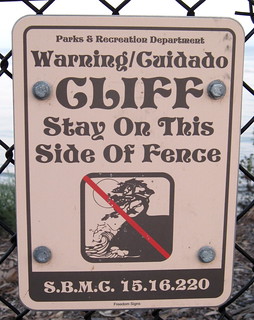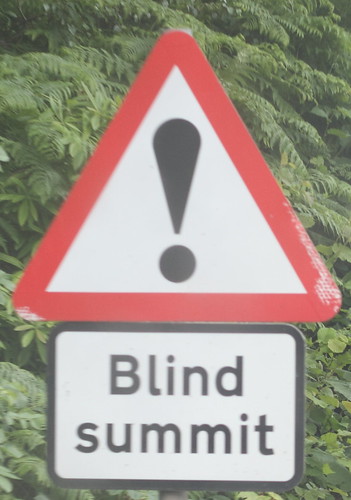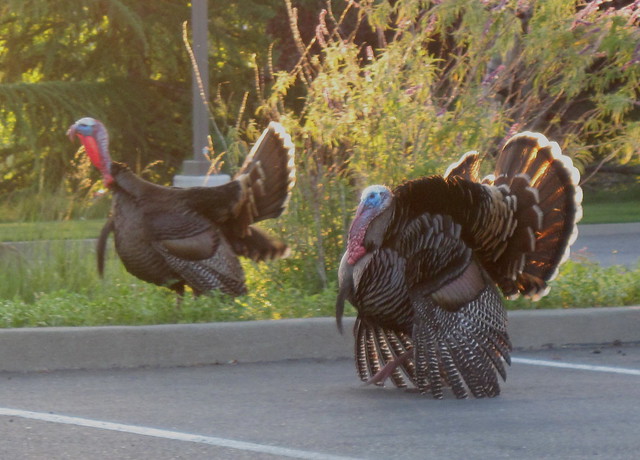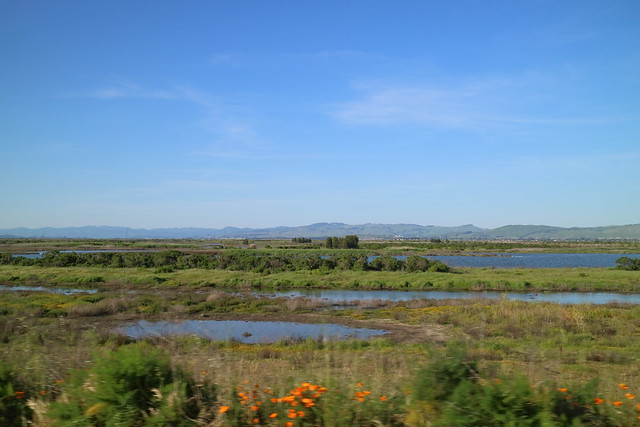Seattle has changed a great deal since we were last there for more than a stop at the airport – which was about in 2000, when we were sponsors for a class of Seniors who are now approaching their (mid?) thirties and have kids of their own (sheesh). The picture above is from out the window of our very posh (fireplace, footstool, comfy robes, views, and teddy bear, natch) waterfront hotel, where we saw varying sizes of ferries crossing the Puget Sound every half hour or so, and two cruise ships pull up for servicing – which allowed us then to see a close inspection of the external portholes by burly men on mechanical lifts, and what we assume must have been an inspection of luggage and passenger areas by a gentleman from the DEA and their his chipper, tail-wagging drug sniffer dog.
Seattle is sometimes… so very Seattle-y, to those visiting. Moreso than our last visit, we noted the man buns, manly beards, and the plaid, oh, the plaid. Also, the über-woodsy, hyper-folksy, log-cabinesqueness of the place was not lost on us (What. Is. With. The. Antlers.). An epic winter has produced more greenery than usual, to the extent that it’s growing out of the tops of buildings, which reminded us a great deal of Glasgow. T. was most amused at the Seattle-ness of being at the posh hotel restaurant and being served, instead of cedar plank salmon, cedar plank tofu and roasted vegetables. (It was okay.) D. was most amused by the Seattle-ness of the canine cavalcade parading past at the big tech company. Pet friendly workplaces, doggy daycare and coffee shops are all over the city, along with microbreweries and [electric] bike shops. Phrases like “Fur Baby” were tossed around … Both childless and petfree, we felt a little left out. (But, not enough to actually get one of either.) We noted that while Northern California at least keeps its bona fides as a place more easily full of health foodies (there were both a surfeit the of spandexed and lots of pastries and doughnuts on offer all over), we did chuckle that every second car was a hybrid, and certainly every Lyft car was, so well done, Pacific Northwest for that.
An epic winter has produced more greenery than usual, to the extent that it’s growing out of the tops of buildings, which reminded us a great deal of Glasgow. T. was most amused at the Seattle-ness of being at the posh hotel restaurant and being served, instead of cedar plank salmon, cedar plank tofu and roasted vegetables. (It was okay.) D. was most amused by the Seattle-ness of the canine cavalcade parading past at the big tech company. Pet friendly workplaces, doggy daycare and coffee shops are all over the city, along with microbreweries and [electric] bike shops. Phrases like “Fur Baby” were tossed around … Both childless and petfree, we felt a little left out. (But, not enough to actually get one of either.) We noted that while Northern California at least keeps its bona fides as a place more easily full of health foodies (there were both a surfeit the of spandexed and lots of pastries and doughnuts on offer all over), we did chuckle that every second car was a hybrid, and certainly every Lyft car was, so well done, Pacific Northwest for that.
Of course it rained during the four days we were there, but there was also a lot of wind and sea and sun. A charming, sprawling green mess of fauna and water, all beauty and art and earnest hipsters, fifty dozen Starbucks stores, loiterers, dog walkers and …traffic. D. was invited to come over for grueling interview (those six hour ‘invitations’ from big companies are a doozy) but T. was looking forward to meeting a blog-friend in person with whom she’d only ever corresponded…. and had the laughable coincidence of dining two nights with her friend, whose husband works for the company with which D was interviewing! Seattle is huge, but the tech world is teensy, in some ways.
Still a great deal up in the air, but it was a nice break from the ordinary.
-D & T
